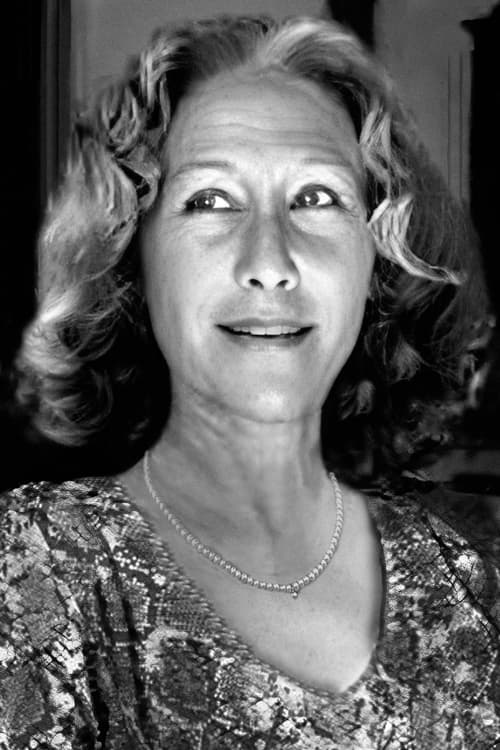
Anne-Marie Miéville
Nascimento : 1945-11-11, Lausanne, Switzerland
História
Anne-Marie Miéville, born November 11, 1945 in Lausanne, is a filmmaker, director, producer, screenwriter, actress and writer from Vaud. Anne-Marie Miéville works as a photographer and is the manager of a bookstore. In the 1960s, she also recorded two variety discs for Barclay, on songs by Jean-Jacques Debout. Then in 1972, she met Jean-Luc Godard in Paris, who became her companion until his death in 2022. Initially, from 1973 to 1994, she collaborated with this filmmaker as a photographer, screenwriter, editor, co-director and artistic director for some of her/their films. Then in 1983, she directed her first short film, "How Can I Love", and, a year later, a second short film, "Le Livre De Marie".
Since then, she has continued to make films. Through her cinematographic stories, she questions, with a singularity of tone, love, time, the meaning of things, ... Her first feature film is called: "My Dear Subject" and was released in 19883. 1994 "Lou Didn't Say No".
Still in 1994, Anne-Marie Miéville published "Histoire Du Garçon", a text retracing the career and life of her brother Alain, who died accidentally in 1993. In 1996/1997, a new feature film was broadcast, "Nous Sommes Tous Encore Here". Then in 2000, "Après La Réconciliation" in which she appeared, accompanied by Claude Perron, Jacques Spiesser, Jean-Luc Godard and Xavier Marchand.
In 2002, she wrote "Images In Words", short texts published by Farrago, which the publisher wrote were "a series of fixed shots, short films of writing. Strictly speaking, it is not a question of news, but rather of indescribable moments, fleeting perfumes of images, where it would be a question of filming with words”.

Director
A special version of ‘Dans le noir du temps’ for viewers in Ramallah and the Gaza Strip.

Director
Cats laying, moving, leading a kind of interlude directed by Anne-Marie Miéville.
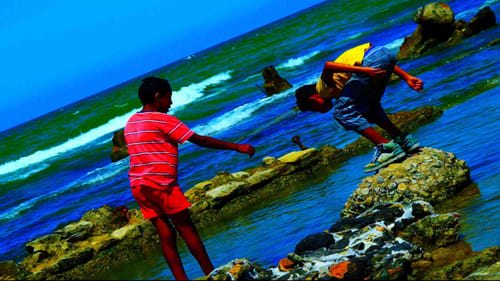
Narrator (voice)
Você ainda se lembra de como, há muito tempo, treinamos nossos pensamentos? Na maioria das vezes, partimos de um sonho... Nos perguntamos como, na escuridão total, cores de tal intensidade poderiam emergir dentro de nós. Em voz baixa e suave, dizendo coisas maravilhosas, surpreendentes, profundas e precisas. Imagem e palavras como um sonho ruim escrito em uma noite tempestuosa. Sob os olhos ocidentais. Os paraísos perdidos. A guerra está aqui. Narrado pelo próprio Jean-Luc Godard, o longa mostra o mundo árabe e ocidental com imagens de diversas origens —filmes antigos, fotografias, imagens de arquivo e, por meio de uma linguagem que remete aos filmes de terror, retrata a violência da atualidade.

Rue du Temple, Rolle, Switzerland, June 2013.

Director
Short foundfootage film by Anne-Marie Miéville.

Director
Director Jean-Luc Godard reflects in this movie about his place in film history, the interaction of film industry and film as art, as well as the act of creating art.

Director
Jean-Luc Godard, and Anne-Marie Miéville Four Short Films

Narrator (voice)
Jean-Luc Godard, and Anne-Marie Miéville Four Short Films

Director
Short film by Ann-Marie Mieville on Godard's model for his exhibition "Collages de France"
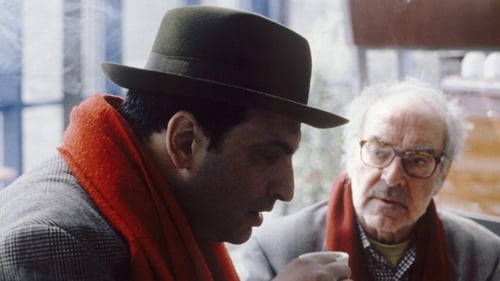
Art Direction
Um filme em três partes: Inferno, Purgatório e Paraíso. A primeira parte é composta por imagens de guerra. Aviões, tanques, batalhas, explosões, tiros, execuções, países devastados, aldeias destruídas. A segunda mostra Sarajevo actualmente, martirizada como tantas outras. Personagens reais e imaginárias. Na última, uma jovem mulher - que vimos no Purgatório - sacrifica-se, encontra a paz na água, numa pequena praia guardada por Marines norte-americanos.

Screenplay
Intitulado "The Cello"(O Celo), esta é a segunda parte do projeto que reúne diretores de todas as partes do mundo para dar a sua visão do tempo. Aqui,oito cineastas falam sobre o nascimento,a morte,o amor,o drama de cada momento da vida e mitos passados. A primeira parte do projeto,"The The Trumpet" (O Trumpete) reúne sete cineastas.
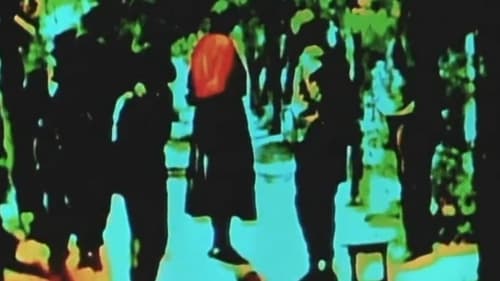
Writer
Conceived as a reflection on the theme of time at the turn of the millennium, "Dans le noir du temps" functions as a Pandora’s box which hides all the horrors of the world: the last moments of youth, fame, thoughts, memory, love, silence, history, fear, eternity and, of course, cinema.
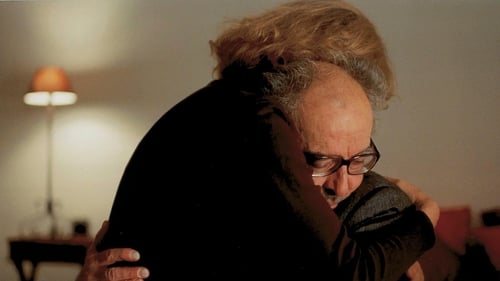
Editor
An elderly couple and a younger man and woman follow up failed seduction attempts with conversation about love and the meaning of life.

La première femme
An elderly couple and a younger man and woman follow up failed seduction attempts with conversation about love and the meaning of life.

Screenplay
An elderly couple and a younger man and woman follow up failed seduction attempts with conversation about love and the meaning of life.

Director
An elderly couple and a younger man and woman follow up failed seduction attempts with conversation about love and the meaning of life.

Editor
Essay on the influence of arts at the end of the 20th century produced by the Museum of Modern Art.

Writer
Essay on the influence of arts at the end of the 20th century produced by the Museum of Modern Art.

Director
Essay on the influence of arts at the end of the 20th century produced by the Museum of Modern Art.

Screenplay
Two housewives discuss philosophical themes (actually an updated dialogue between Plato and Socrates) while doing the house work. The husband of one of them rehearses his part in a theatrical play, reading a 20th century philosophical text about totalitarianism.

Editor
Two housewives discuss philosophical themes (actually an updated dialogue between Plato and Socrates) while doing the house work. The husband of one of them rehearses his part in a theatrical play, reading a 20th century philosophical text about totalitarianism.

Director
Two housewives discuss philosophical themes (actually an updated dialogue between Plato and Socrates) while doing the house work. The husband of one of them rehearses his part in a theatrical play, reading a 20th century philosophical text about totalitarianism.

Editor
At a lakeside hotel, Michel Piccoli discusses the centennial of cinema with Jean-Luc Godard. Godard asks why should cinema's birthday be celebrated when the history of film is a forgotten subject. Through the remainder of his hotel stay, Piccoli tests Godard's hypothesis.

Director
At a lakeside hotel, Michel Piccoli discusses the centennial of cinema with Jean-Luc Godard. Godard asks why should cinema's birthday be celebrated when the history of film is a forgotten subject. Through the remainder of his hotel stay, Piccoli tests Godard's hypothesis.

Screenplay
The turbulent relationship between a filmmaker and a volatile actor.

Editor
The turbulent relationship between a filmmaker and a volatile actor.

Director
The turbulent relationship between a filmmaker and a volatile actor.

Director
Children living and playing in a war zone are touched by violence. Part of How Are the Kids? (1990), a UNICEF-sponsored six-film anthology depicting childhood horrors around the world.

Director
Contre l'Oubli (Against Oblivion) is a compilation of 30 French filmmakers, Alain Resnais and Jean Luc Godard among them, who use film to make a plea on behalf of a political prisoner. Jean Luc Godard and Anne Marie Mieville's film concerns the plight of Thomas Wanggai, West Papuan activist who has since died in prison. The short films were commissioned by Amnesty International.

Director
A video letter composed for Amnesty International's 'Lest We Forget' series.
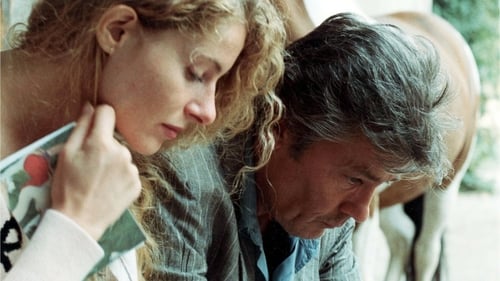
Art Direction
Composed entirely of literary quotations from many different sources and from several historical periods, the loose narrative concerns a drifter found by a rich woman who soon falls in love with him. A drowning accident takes place and the drifter dies, but some time later he reappears in the woman’s life looking for a job. Or could it be the man’s twin brother?

Director

Editor
From birth to death every subject remains intact. Three ages, three women. Daughter, mother, grandmother. Each of them before and after still and always. And the men too, those they meet those they love.

Writer
From birth to death every subject remains intact. Three ages, three women. Daughter, mother, grandmother. Each of them before and after still and always. And the men too, those they meet those they love.

Director
From birth to death every subject remains intact. Three ages, three women. Daughter, mother, grandmother. Each of them before and after still and always. And the men too, those they meet those they love.

Mamzelle Clio
A daring deconstruction of consumerist behavior featuring a robot and Miss Clio Darty, with a voiceover by Godard and Anne-Marie Miéville, this philosophical "report," like so many of Godard's commissions, was rejected by its funders.

Director
A daring deconstruction of consumerist behavior featuring a robot and Miss Clio Darty, with a voiceover by Godard and Anne-Marie Miéville, this philosophical "report," like so many of Godard's commissions, was rejected by its funders.

Writer
"Miéville captures a moment of disquieting intimacy amid the bustle of a parade." - BAM

Director
"Miéville captures a moment of disquieting intimacy amid the bustle of a parade." - BAM

Editor
Anne-Marie Miéville, frequent collaborator of Jean-Luc Godard, made this partner piece to Godard's own 'Je vous salue, Marie'. Marie, eleven years old, is experiencing difficult times. Her parents will separate. The perception of her universe is profoundly disturbed. This exacting portrait of a child immersed in her books, music and dancing casts a dispassionate yet touching eye on the girl's reaction to the new upheaval in her life.

Writer
Anne-Marie Miéville, frequent collaborator of Jean-Luc Godard, made this partner piece to Godard's own 'Je vous salue, Marie'. Marie, eleven years old, is experiencing difficult times. Her parents will separate. The perception of her universe is profoundly disturbed. This exacting portrait of a child immersed in her books, music and dancing casts a dispassionate yet touching eye on the girl's reaction to the new upheaval in her life.

Director
Anne-Marie Miéville, frequent collaborator of Jean-Luc Godard, made this partner piece to Godard's own 'Je vous salue, Marie'. Marie, eleven years old, is experiencing difficult times. Her parents will separate. The perception of her universe is profoundly disturbed. This exacting portrait of a child immersed in her books, music and dancing casts a dispassionate yet touching eye on the girl's reaction to the new upheaval in her life.
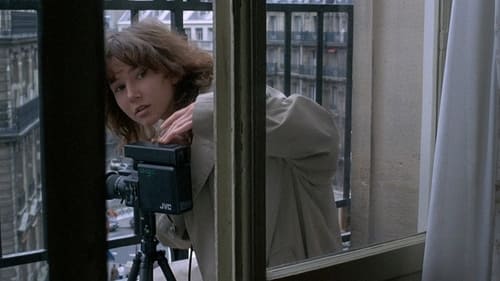
Screenplay
Emile Chenal e sua esposa, Françoise, recorrem ao agente de boxeadores Jim Fox Warner para pagar um valor considerável que lhes deve, com a polícia e a máfia de olho na situação. No mesmo hotel, o Inspetor Neveu investiga um homicídio que aconteceu ali três anos antes.
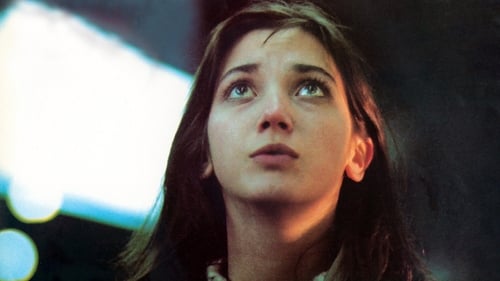
Editor
Quando a jovem Maria, ainda virgem, engravida, o noivo José a acusa de ser infiel. Gabriel, um estranho, tenta convencer o homem de que tudo faz parte do plano divino e não deve ser contestado.
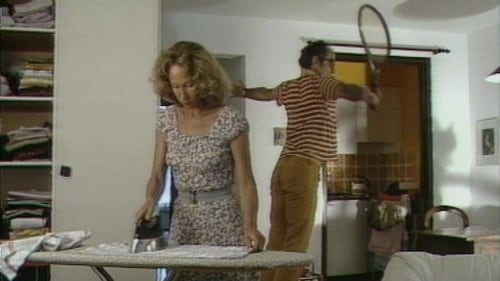
Editor
Jean-Luc Godard and Anne-Marie Miéville talk about their films, while doing everyday tasks around their house.

Writer
Jean-Luc Godard and Anne-Marie Miéville talk about their films, while doing everyday tasks around their house.

Director
Jean-Luc Godard and Anne-Marie Miéville talk about their films, while doing everyday tasks around their house.

Herself
Jean-Luc Godard and Anne-Marie Miéville talk about their films, while doing everyday tasks around their house.

Writer
Vencedor do Leão de Ouro no Festival de Veneza, Carmen faz parte de uma gangue terrorista e se apaixona por um oficial de polícia que faz a segurança de um banco que ela e seus companheiros planejam roubar. Ela o seduz, colocando-os cada vez mais próximos da destruição. Carmen é vivida por Maruschka Detmers, que cria o tão erotizado clima durante as comentadas cenas de nudez.

Scenario Writer
Vencedor do Leão de Ouro no Festival de Veneza, Carmen faz parte de uma gangue terrorista e se apaixona por um oficial de polícia que faz a segurança de um banco que ela e seus companheiros planejam roubar. Ela o seduz, colocando-os cada vez mais próximos da destruição. Carmen é vivida por Maruschka Detmers, que cria o tão erotizado clima durante as comentadas cenas de nudez.

Self
Notes on the inception and making of Hail Mary.

Editor
"One Woman, five men, five breakups." - BAM

Writer
"One Woman, five men, five breakups." - BAM

Director
"One Woman, five men, five breakups." - BAM

Script Consultant
Although there are women in the lives of the three main protagonists -- a middle-aged architect, his construction designer, and a journalist -- the women are not as crucial to the men's search for an identity as the title might suggest. When the three men run into a former professor of the architect and designer, they are inspired by his fanfare and expansive nature. Still in search of solutions to their particular problems, the men head out to visit the professor and get to the bottom of their own issues. Unfortunately, the professor turns out to be more "loco" than otherwise, and the three men watch their hopes burst like a popped balloon -- it seems like their ability to assess human character should now be added to their list of problem spots.

Still Photographer
Although there are women in the lives of the three main protagonists -- a middle-aged architect, his construction designer, and a journalist -- the women are not as crucial to the men's search for an identity as the title might suggest. When the three men run into a former professor of the architect and designer, they are inspired by his fanfare and expansive nature. Still in search of solutions to their particular problems, the men head out to visit the professor and get to the bottom of their own issues. Unfortunately, the professor turns out to be more "loco" than otherwise, and the three men watch their hopes burst like a popped balloon -- it seems like their ability to assess human character should now be added to their list of problem spots.

Self
Godard constructs a lyrical study of the cinematic and creative process by deconstructing the story of his 1982 film Passion. “I didn’t want to write the script,” he states, “I wanted to see it.” Positioning himself in a video editing suite in front of a white film screen that evokes for him the “famous blank page of Mallarmé,” Godard uses video as a sketchbook with which to reconceive the film. The result is a philosophical, often humorous rumination on the desire and labor that inform the conceptual and image making process of the cinema.
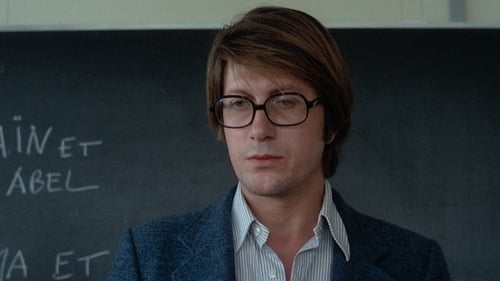
Editor
O produtor de TV Paul leva a ex-namorada para conhecer a casa de campo que pretende alugar. Quando Isabelle, uma prostituta de quem Paul já foi cliente, surge no local, as histórias dos três se cruzam.

Screenplay
O produtor de TV Paul leva a ex-namorada para conhecer a casa de campo que pretende alugar. Quando Isabelle, uma prostituta de quem Paul já foi cliente, surge no local, as histórias dos três se cruzam.

Scenario Writer
O produtor de TV Paul leva a ex-namorada para conhecer a casa de campo que pretende alugar. Quando Isabelle, uma prostituta de quem Paul já foi cliente, surge no local, as histórias dos três se cruzam.

Director
The parents' violence on their children. Father and mother can each have hidden violence in the family universe.

Director
In this astonishing twelve-part project for and about television — the title of which refers to a 19th-century French primer Le tour de la France par deux enfants — Godard and Miéville take a detour through the everyday lives of two children in contemporary France.

Editor
A pedido da Liga Árabe para produzir um filme sobre a Revolução Palestina, os planos de Godard e Gorin foram arruinados pelo Setembro Negro. Agora trabalhando com Miéville, Godard transformou as filmagens originais em uma autocrítica, comparando as vidas de uma família francesa e outra palestina.

Writer
A pedido da Liga Árabe para produzir um filme sobre a Revolução Palestina, os planos de Godard e Gorin foram arruinados pelo Setembro Negro. Agora trabalhando com Miéville, Godard transformou as filmagens originais em uma autocrítica, comparando as vidas de uma família francesa e outra palestina.

Narrator (voice)
A pedido da Liga Árabe para produzir um filme sobre a Revolução Palestina, os planos de Godard e Gorin foram arruinados pelo Setembro Negro. Agora trabalhando com Miéville, Godard transformou as filmagens originais em uma autocrítica, comparando as vidas de uma família francesa e outra palestina.

Producer
A pedido da Liga Árabe para produzir um filme sobre a Revolução Palestina, os planos de Godard e Gorin foram arruinados pelo Setembro Negro. Agora trabalhando com Miéville, Godard transformou as filmagens originais em uma autocrítica, comparando as vidas de uma família francesa e outra palestina.

Director
A pedido da Liga Árabe para produzir um filme sobre a Revolução Palestina, os planos de Godard e Gorin foram arruinados pelo Setembro Negro. Agora trabalhando com Miéville, Godard transformou as filmagens originais em uma autocrítica, comparando as vidas de uma família francesa e outra palestina.
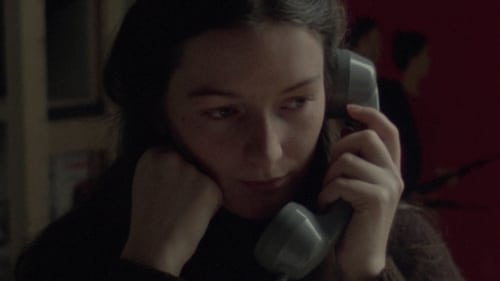
Producer
Durante a elaboração de uma reportagem sobre um jornal comunista, um sindicalista e um ativista de esquerda discordam sobre como apresentar as informações, sobretudo na hora de criar legendas para duas imagens: uma de um protesto em Portugal; a outra, de uma greve na França.

Odette
Durante a elaboração de uma reportagem sobre um jornal comunista, um sindicalista e um ativista de esquerda discordam sobre como apresentar as informações, sobretudo na hora de criar legendas para duas imagens: uma de um protesto em Portugal; a outra, de uma greve na França.

Writer
Durante a elaboração de uma reportagem sobre um jornal comunista, um sindicalista e um ativista de esquerda discordam sobre como apresentar as informações, sobretudo na hora de criar legendas para duas imagens: uma de um protesto em Portugal; a outra, de uma greve na França.

Director
Durante a elaboração de uma reportagem sobre um jornal comunista, um sindicalista e um ativista de esquerda discordam sobre como apresentar as informações, sobretudo na hora de criar legendas para duas imagens: uma de um protesto em Portugal; a outra, de uma greve na França.

Director
The title and subtitle of this French miniseries are “Six Times Two; Over and under the media”. The “six” refers to the fact that there are six episodes; the “two” has a double meaning.

The title and subtitle of this French miniseries are “Six Times Two; Over and under the media”. The “six” refers to the fact that there are six episodes; the “two” has a double meaning.
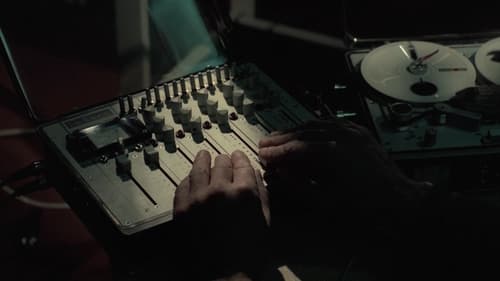
Writer
Jean-Luc Godard mistura vídeo e filme no seu estúdio em Grenoble, discutindo como ele garantiu o financiamento para o filme. A ação se desenrola em dois monitores: de um lado, vemos um casal vivendo em apartamento claustrofóbico; de outro, vemos a discórdia desencadeada pela infidelidade da esposa.
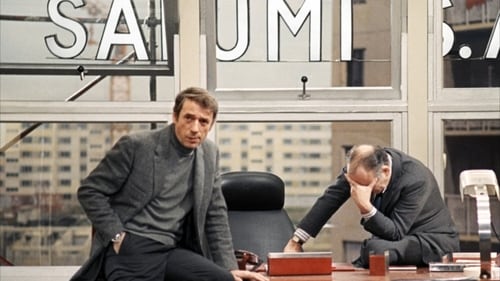
Still Photographer
Godard examina a estrutura de filmes, relacionamentos e revoluções através da vida de um casal em Paris. Jean-Luc Godard disseca a estrutura da sociedade, de filmes, do amor e da revolução. Ele faz perguntas convincentes: O amor pode sobreviver a um relacionamento? A ideologia pode sobreviver a revolução? Ele também analisa as manifestações dos estudantes franceses na década de 1960, com um olhar crítico, e acaba satirizando visões contemporâneas da história. Uma bateria de pensamentos completos com uma crítica da sociedade moderna e dos filmes.

















